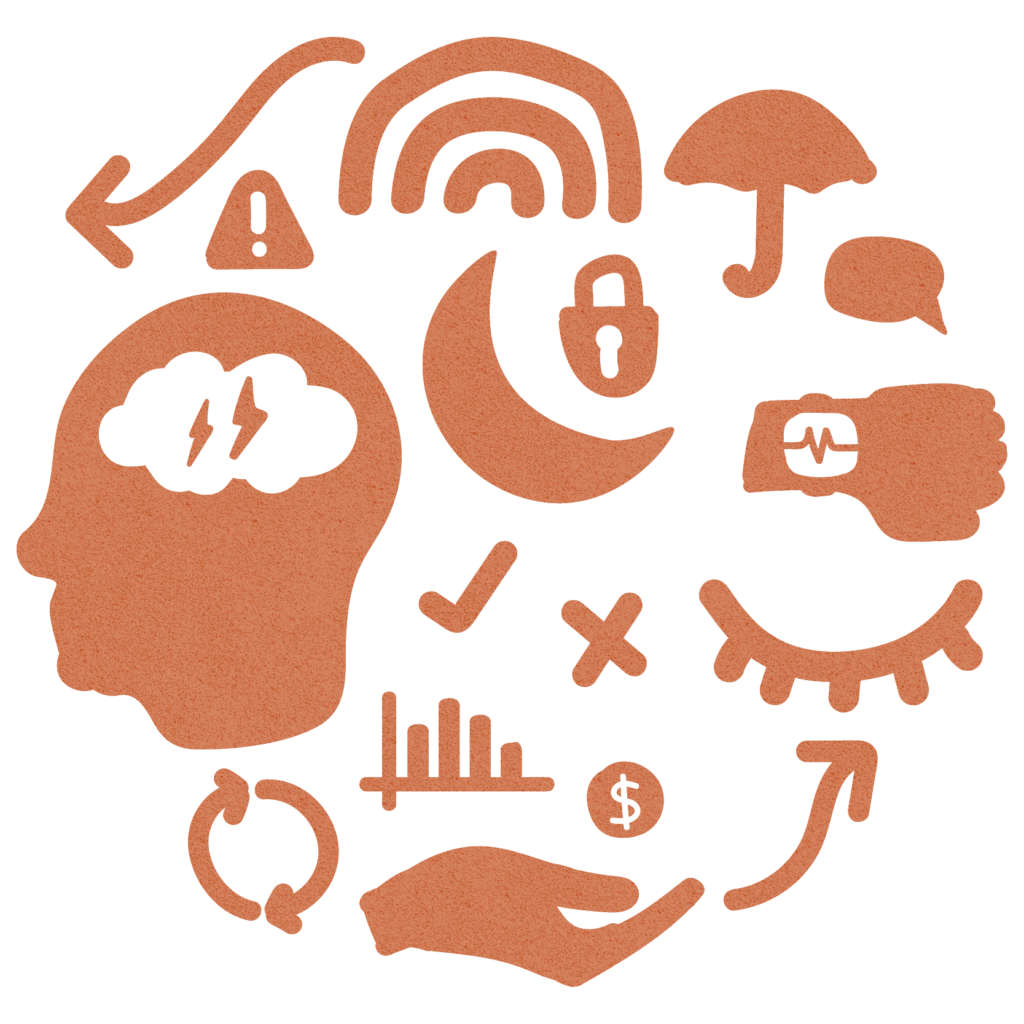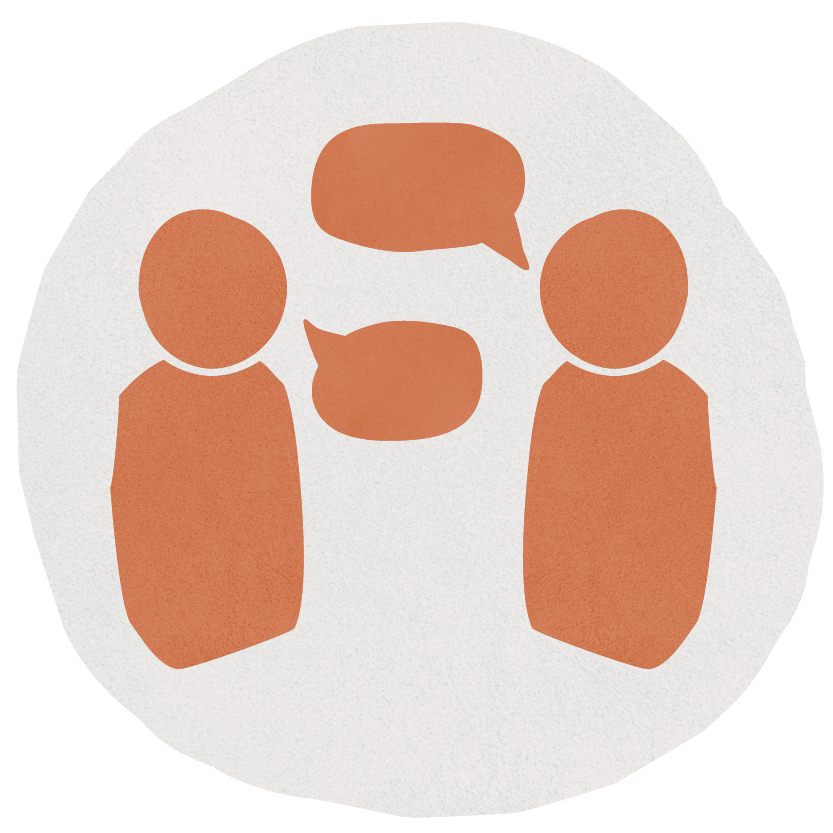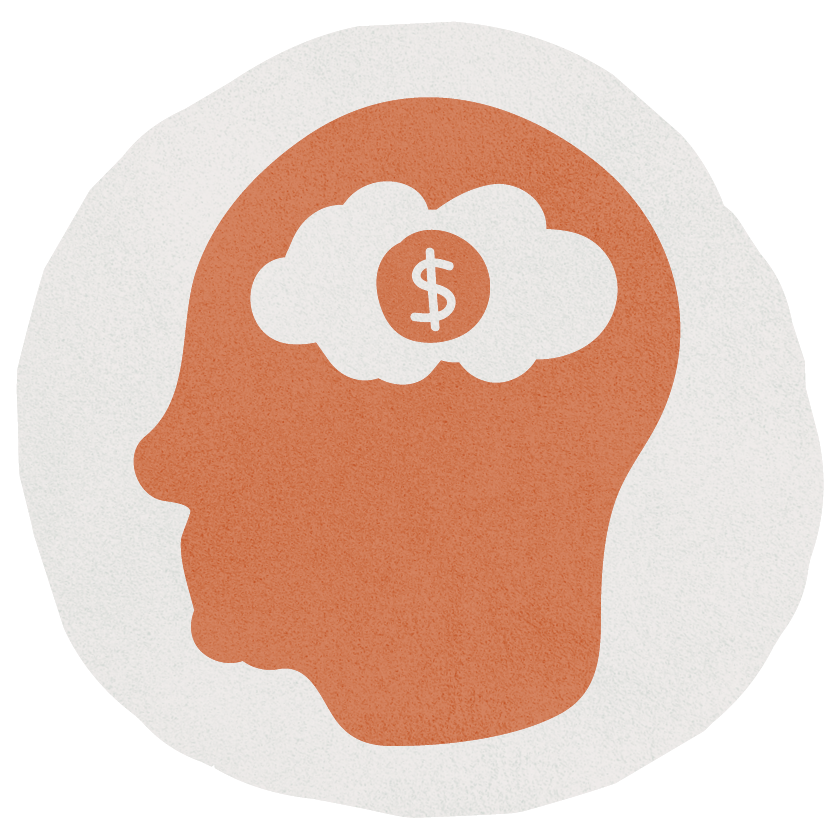Professor Nick Glozier
Chief Investigator
|
Program Leader
The University of Sydney
Research program 1

Policy solutions that account for psychological and physiological functioning are best placed to make a difference for disadvantaged people. Through our People program, Life Course Centre researchers are investigating the cognitive processes of individuals to determine how they apply their human capabilities, and how their decision-making processes can be leveraged to reduce and prevent disadvantage. Contemporary neuroscience has identified that patterns of disadvantage affect neurocognitive pathways, producing distinct characteristics in the behaviours, reactions, and responses of people experiencing disadvantage that differ from others. We are leveraging this emerging knowledge to specifically explore the decision-making of people in disadvantaged circumstances.
This research has its origins in the social sciences of neuroeconomics, behavioural economics, social cognition, neurocriminology and systems theory. By triangulating social science methods like social surveys with the insights, self-measurements and experimental techniques of psychology and neuroscience, we are driving a new cognitive science approach to overcoming disadvantage and promoting personal agency.
Efforts to address disadvantage have typically relied on responding to average needs across large-scale populations. Our People research program is moving beyond averages to explore individuals’ cognitive and decision-making processes, the impact of factors such as mental health, sleep and neurodevelopmental disorders on life outcomes, and how this new knowledge can be leveraged to reduce and prevent disadvantage.
Professor Nick Glozier, People research program lead
Predicting how the duress of disadvantage affects individual decisions and drives predictable biases.
Defining financial attitudes and behaviours that are associated with entering and exiting disadvantage.
Interpreting sleep and circadian function as an index of social disadvantage and a driver of inequality in cognitive processing.


Waking at night is typical across infancy and early childhood and inevitably disrupts family sleep. In 2021, our researchers have specifically examined how children’s sleep impacts on fathers. This study, involving teams led by Chief Investigators Professors Simon Smith and Karen Thorpe, UQ, and collaboration with our Melbourne node, showed poor child sleep in children from birth to age 12 was associated with poorer health and wellbeing in fathers. But associations of poor child sleep with depression in fathers were weaker than for mothers in the same household. Poor child sleep had a negative impact on the quality of family relationships, both within couples and between parent and child. Significantly, the associations between children’s sleep and father’s sleep were observed when child sleep was measured via actigraphy or paternal report, but not when measured via maternal report, suggesting mothers may not always be aware of disruptions that wake fathers.
Self-control, or the ability to override inner impulses, temptations and behavioural tendencies, is integral to the choices that people make. Centre researchers, led by Chief Investigator Professor Deborah Cobb-Clark, Sydney, made important new contributions to this field with two 2021 Life Course Centre Working Papers examining sophistication and stability around self-control. One paper explored people’s sophistication about, or awareness of, their self-control, compared to naivety. It showed that having awareness of one’s self-control had positive consequences for people’s health and wellbeing, highlighting the need for raising people’s awareness of their levels of self-control. Another paper investigated the stability of self-control over the life course. It found that changes in people’s measured self-control are unrelated to major life events, such as employment shocks, relationship breakdown, family death, childbirth, or length of exposure to COVID-19, highlighting that self-control can be a stable personality trait for navigating life course events and experiences.


The Australian Twins Economic Preferences Survey is a valuable new dataset for studying economic preferences and behaviours. Led by Centre researchers and based on survey responses from 1,120 adult twins (560 pairs), it covers a range of incentivised preference measures such as risk, impatience, trust and confidence. Researching twins can provide strong counterfactuals for causal inference and can break down variations in personal characteristics into genetic, family, and unique environment effects. This can help to shed light on the intergenerational transmission of behaviours. One of the first studies from the survey explored the impact of genetic and environment factors on trust.
The happiness of increasing numbers of Australians is becoming more and more dependent on income and this is likely to drive further inequities in wellbeing between the rich and poor.
This is a key finding of new Centre research, led by Chief Investigator Professor Nick Glozier and colleagues at the Faculty of Medicine and Health, Sydney, exploring the associations between income and happiness. Specifically, this research identified that the ‘change point’ at which Australians’ happiness is no longer strongly dependent on income has almost doubled from A$43,000 to A$74,000 from 2001–2019. As this point has grown, the happiness of more Australians has become more dependent on their income. This study, which attracted high levels of media exposure on publication, concluded that happiness was becoming more expensive and out of reach for many Australians. It recommended that, as we head into a post-COVID economic recovery, governments pay attention to more than economic growth and ask if the distribution of wellbeing and happiness is improving for all.
Other work from the Mental Health network focussed on COVID-related financial impacts. Dr Isabella Choi, Research Fellow, Sydney, led a 2021 study working with Australia’s largest provider of disability insurance and income protection that found Australian workers who accessed the COVID-19 early access superannuation scheme had high levels of psychological distress, felt a greater impact of the pandemic, and could benefit from targeted financial supports and resources. Separate research, involving several Centre and Mental Health network researchers from the Melbourne Institute: Applied Economics & Social Research, found that workers who experienced a labour market shock during COVID-19 had, on average, a 29% lower level of perceived financial wellbeing. It recommended targeted financial counselling and supports could help people regain financial control during periods of economic uncertainty.
This page was printed at 5:37 pm on Tuesday, 22 Oct 2024.
Please see https://lifecoursecentre.org.au/research/research-programs/people/ for the latest version.
© COPYRIGHT 2024. ALL RIGHTS RESERVED.